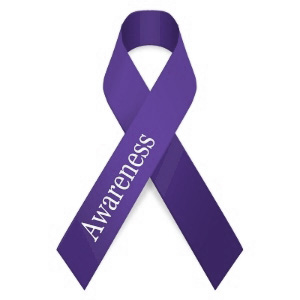 I’m a huge football fan, so most Sundays in the fall and winter are spent watching games. Starting this past Sunday and running until the end of the month, all of the NFL teams will accent their uniforms and gear with pink, in support of the American Cancer Society’s breast cancer awareness campaign. During one of the games, my friend commented, “I’m all about pink and bringing attention to a cause, but is this really what my donation to cancer research is paying for?” Her question really got me thinking about how awareness campaigns are run and whether or not they fulfill their mission improve health outcomes.
I’m a huge football fan, so most Sundays in the fall and winter are spent watching games. Starting this past Sunday and running until the end of the month, all of the NFL teams will accent their uniforms and gear with pink, in support of the American Cancer Society’s breast cancer awareness campaign. During one of the games, my friend commented, “I’m all about pink and bringing attention to a cause, but is this really what my donation to cancer research is paying for?” Her question really got me thinking about how awareness campaigns are run and whether or not they fulfill their mission improve health outcomes.
Coincidentally, the Los Angeles Times published an article questioning the benefits of awareness campaigns. The author highlighted a few reasons why awareness campaigns, specifically breast cancer awareness campaigns, may not have the impact they promise: little improvement in breast cancer mortality rates; lack of alignment of the goals of the campaign with developments in breast cancer research, which may lead to women being over-diagnosed and undergoing unnecessary treatments; and conflict of interest between purpose of the campaign (i.e. increase and improve early detection of breast cancer) and sponsorship by pharmaceutical companies that provide breast cancer drugs. Her compelling arguments made me think about whether the Oncofertility Consortium’s own awareness efforts have similar characteristics and what could be done to strengthen its campaign.
The Oncofertility Consortium raises awareness on all different fronts by approaching solutions to fertility impairment from cancer treatment in partnership with basic scientists, clinicians, and social scientists and humanists. Basic scientists involved in fertility preservation research use the newest, groundbreaking materials and techniques to increase cancer patients’ likelihood of having children after fertility-threatening cancer treatment. Clinically speaking, the impact of the Oncofertility Consortium occurs at the time of a young patient’s cancer diagnosis when information is exchanged about what fertility preservation options are available. Whether or not the patient decides to pursue fertility preservation, the critical element is that the patient, regardless of prognosis, socioeconomic status, and race, is made aware that her cancer treatment may affect her fertility and that now is the opportunity to act. Consortium social scientists and humanists examine case studies and conduct “thought experiments” to reflect on the historical, ethical, and social implications of fertility preservation. In all, the Oncofertility Consortium’s education and dissemination efforts avoid the potential pitfalls of awareness campaigns by staying on top of the science, respecting the patient’s wishes regarding her fertility, and examining the societal and ethical conflicts that surround fertility preservation.
Of course, the Consortium’s awareness campaign is a dynamic work in constant progress and growth. The Oncofertility Consortium strives to engage trainees and fellows in the basic, clinical, and social sciences and humanities to become the next generation of fertility preservation experts. Outreach to cancer support and advocacy communities continues to develop in order to spread the message of the Oncofertility Consortium through existing local and nationwide networks. Resources such as publications, patient and provider testimonies, training videos, and conference presentations are regularly updated and added on the Oncofertility Consortium and MyOncofertility.org websites. Through consistent vigilance and self-evaluation, the Oncofertility Consortium ensures that its awareness campaign remains effective and valuable to cancer patients and their families.

